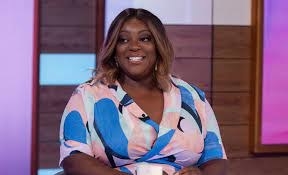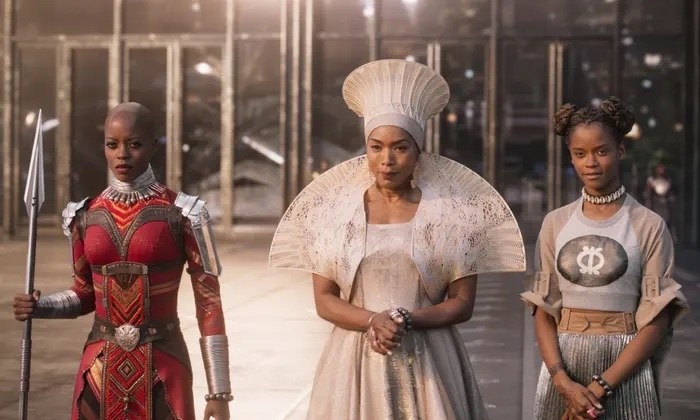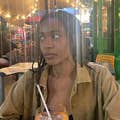It’s International Women’s Day today!!
To celebrate, we sat down with the multi-talented Judi Love to talk about her career, the media industry, and representation.

So we’re here to talk about Black Panther: Wakanda Forever, but since the first one came out, your career trajectory has really taken off. How are you feeling As a powerful Black woman in this space?
I mean, it's really crazy. When I hear someone say anything like that, I feel like I’ve always got this mission of just surviving, and that definitely comes from coming from a working-class background. Coming from parents who came over from the West Indies to the UK and always being subject to being the other; meaning the Black girl, the chubby girl, the dark-skinned girl, the girl with curly hair, the girl with big eyes: there was always layer or label. So I feel like I went on a journey where I started to question what my purpose was in life. And I think you have to go through a transitional period and unfortunately, sometimes adversities make you question yourself and make you question and understand that time is limited.
But I truly believe If you feel like you are listening to your intuition and learning a lot more about yourself, you would then go into the space of your purpose. And I feel like that's when doors open and you're kind of true to yourself. The hardest thing is being true to yourself, but the issue is when you're not, then you end up living in a lie, and causing yourself more harm than actually facing the fear of living your true self.

You’re a stand-up comedian, TV panellist, and now you’re a household name with Loose Women. With such different audiences, do you approach those different spaces and jobs differently?
There are a lot of things that out there about Black people, and there are people from different communities and cultures and ages that actually have had great experiences with Black people and Black culture, but they don't have it around them, so they’re not sure how to get involved. So I just take things at face value, especially with laughter. Laughter and food are something that can always bring us together. Yes, I go into certain spaces and I'm aware of who's there, but I've also had a career in social care, so I'm used to dealing with complex, people in vulnerable, situations. So going through that; meeting somebody else that might call me the wrong name or might address me in a way which is not PC now, I feel like I can still feel powerful in those situations because whether you like it or not, you're going to see him on TV tomorrow,
Yes, there are spaces that have been hard because they have a particular stereotype but my job is not to go in there and to prove anything. Yeah, yeah, sometimes I can be loud, and yes, I'm a single parent. However, I am educated. I'm intelligent, you know, I'm learning about myself on an emotional, physical and spiritual level. There's more to me than just the labels that society wants to place on me or any other Black woman, so I can be all of them. And I think there's one thing as Black women we need to learn is we are allowed to be all of them.

Black Panther is full of layered Black women, and since the film came out, we’ve seen so much more representation on the screen – have you noticed this shift yourself?
Yeah, I think when it comes to film and TV we question why there’s not enough representation. And you know, there’s always that same belief that Black doesn’t really sell, and then a film like this comes out and it’s made millions. And so now we've got other films that are coming up after that, and this is what we're talking about Initially, it's not just about the money, it's about the space it created. So we need to have those things that open up the space where I was, especially in the UK, we needed films and sitcoms. We need the inspiration.
I think there are stories and topics that have come up that because there is more representation, it's been heard and it's been put forward, and that's what we've done as we had for Black women. Good TV always works, that's what it's important, and it doesn't matter who you are. If you've got something that other people can connect with, you should be able to speak about it or make it for other people to watch. We've all had different lives, but we can be intertwined, so I think that's what's important.
